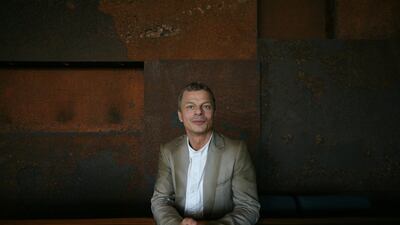Anyone who has ever opened a restaurant will be able to say, with abject certainty, that it is no quick nor easy job.
From creating a concept and menu from scratch to organising licensing and staffing, there’s a lot that goes on behind the scenes to create that perfect dining experience. But while opening a restaurant is in itself a Herculean task, launching one during a pandemic is an entirely different matter.
And, even those with years of experience in the industry, such as Rainer Becker, chef and co-founder of Dubai institution Zuma, are not immune to the challenges the scenario presents.
Becker launched his latest Dubai concept, Roka, earlier this year. Its soft opening took place on March 9 and it officially opened doors on March 18. Just three days later, the team was informed that they would have to operate at a limited capacity. By the end of the month, all restaurants in Dubai were closed to guests and only allowed to do deliveries.
“Opening a restaurant is tough at the best of times but this specific situation is unprecedented,” Becker says.
“There was little time for preparation; we needed to be agile, make quick decisions and, most importantly, ensure our staff and guests were kept as safe as possible. I can only commend our teams for their flexibility and hard work during this period – they have gone above and beyond.”
When news first broke of the coronavirus pandemic, and subsequent safety measures, Roka staff responded by closing the restaurant to evaluate the situation. However, by May, staff had adapted to offer deliveries – a service never before performed at any of Becker’s restaurants around the world.
“Even when restaurants were allowed to open, people were understandably still hesitant to dine out, so we tried to deliver the Roka experience to their homes," says Becker. "As restrictions were lifted during Ramadan, we developed an iftar and Eid menu, which we also made available for takeaway."
The restaurant has since opened to diners as restrictions have gradually been lifted, while accommodating social distancing measures. However, Roka will continue to offer takeaways for the foreseeable future.
According to Becker, it is this ability to adapt to the new normal that will make or break restaurants in the months to come.
“It has always been important that restaurants adapt – look at consumer trends, listen to customers, monitor industry movements, etc. However, if the past few months have taught the restaurant industry anything, then it’s that you can go from 100 to 0 per cent overnight," the chef says.
"Therefore, it is even more important, moving forward, that we watch all of these areas and the economy, and adapt accordingly.
“I think the repercussions of Covid-19 will be felt for a long time to come and if you are not agile, then there is a risk that your business will not succeed."
Becker admits that, had he foreseen how the year would unfold, he would have delayed Roka's opening, ideally to 2021. But, despite the challenges of launching a new concept and having to gain customers' trust during a pandemic, business has been going relatively well.
“It is not what we projected, of course, but considering the restrictions, we couldn’t ask for more," he says.
"Our general manager and head chef have worked incredibly hard to build a strong and cohesive team in very difficult circumstances and I believe that will go a long way to the long term success of Roka Dubai. We have also been very fortunate with our landlord who has been very accommodating; other businesses have not had that advantage.”
Going forward, Becker believes there’s no one-size-fits-all solution when it comes to the success of a restaurant.
“I think the main thing right now is to keep a very close eye on the figures and trends over the next six to nine months and, above all, adapt quickly.”



